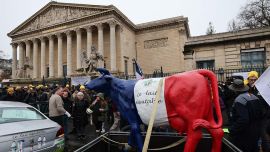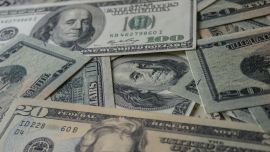The Central Bank cut its benchmark interest rate for the fourth time in just over a month yesterday as the new government of President Alberto Fernández focuses on its goal of returning to growth.
The bank cut the rate Thursday night to 50 percent from 52 percent, well below the country's annual inflation rate, which closed 2019 at close to 54 percent.
Since his appointment in December, the insitution's new chief Miguel Pesce, has lowered the lower limit of the rate from 63 percent.
"The gradual lowering of the interest rate is expected to help relax credit conditions and stimulate economic activity," the Central Bank said in a statement. "The high real interest rates were ineffective in generating sustainable disinflation in the recent past.
South America's second-largest economy is about to contract for the third consecutive year in 2020 and its unemployment rate remains above 10 percent.
The Central Bank also said it would allow companies to send some foreign currency abroad as profits or dividends to non-resident shareholders as of January 17, according to a bank resolution dated a day earlier.
Companies sending money abroad must have made investments in Argentina and can only send up to 30 percent of the amount sold in the local market to invest in Argentine companies.
Profits and dividends must also correspond to closed and audited balances, and companies must provide the documentation required to complete the transaction, according to the resolution.
Pesce declared in an interview on January 8 that the bank would give priority to export-oriented sectors, particularly oil, in its foreign exchange regulation and would allow companies to send dividends abroad despite capital controls.
Under former President Mauricio Macri, the central bank sought to lift foreign exchange and capital controls, implement inflation targeting and control prices through monetary policy instruments, although it eventually resorted to controls at the end of its mandate.
The controls limit foreign exchange purchases to US$200 per month.
– Bloomberg
by Juan Pablo Spinetto, Scott Squires, Bloomberg




















Comments